Where Law Meets Pop Culture: A Creative Space for Exploration
From hip-hop to Victor Hugo, and historical fiction to classic cinema: What do these things have in common with the study of law, you might think? At Maastricht University’s Faculty of Law, a growing group of researchers and students is exploring exactly that and even more. What began as scattered conversations and shared curiosities has since evolved into something much more dynamic. The Law and Popular Culture Research Network brings together academic inquiry and creative expression. How did it all come together, and where is it headed next? Eline Couperus, Agustín Parise, Livia Solaro, and Arthur Willemse, founding members and steering committee, share the network’s story so far.
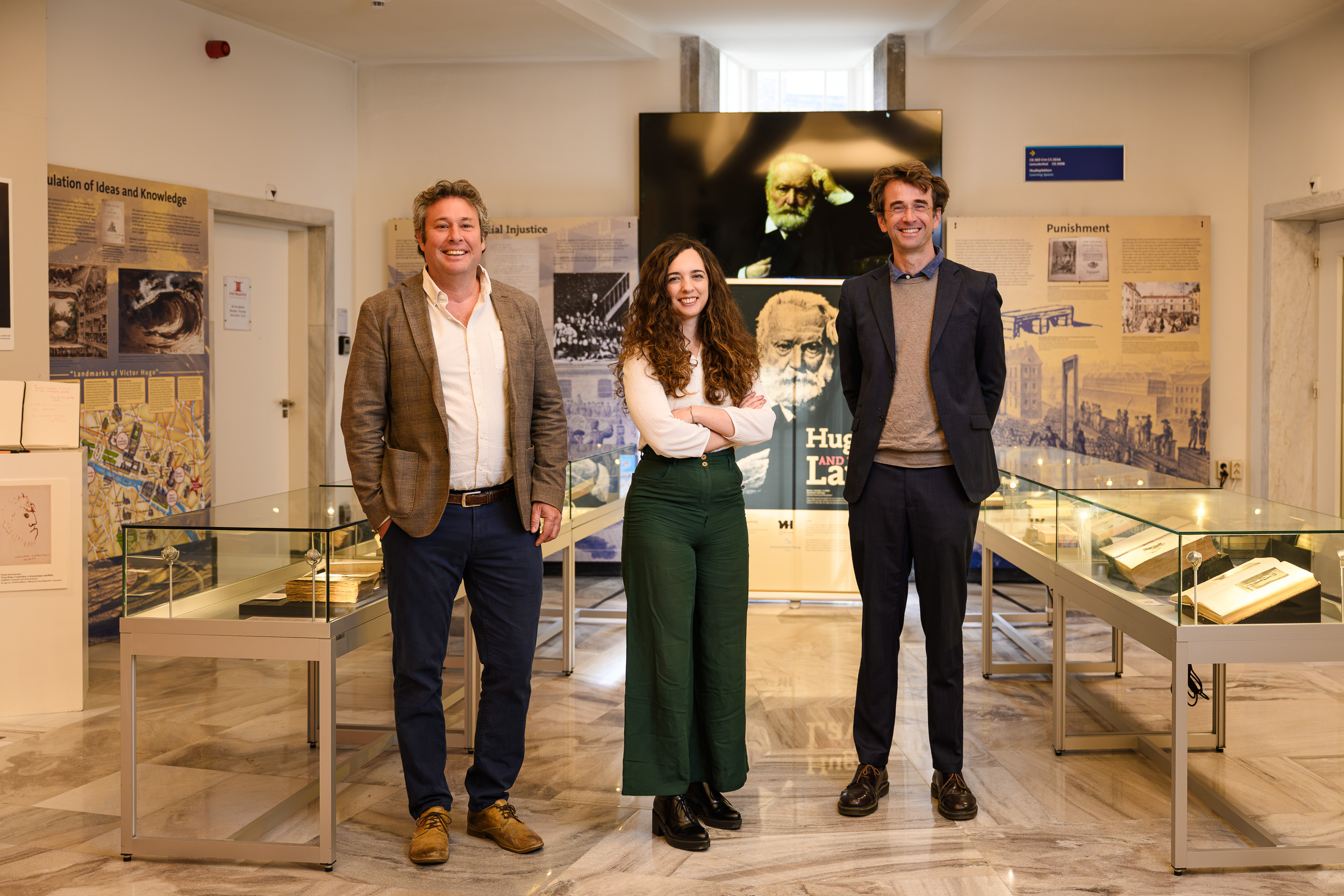
A Network Years in the Making
Is the Law and Popular Culture Research Network completely new, then? Certainly not. People in the faculty have been studying the subject and organising events about popular culture and law for several years, but up until June 2024, there was no official network. ‘For example, in 2013, Jan Smits, who is now our Dean, gave a lecture on how the law is perceived in hip-hop music, and in 2018 the first Law and Popular Culture Roundtable took place,’ Agustín recalls. ‘Speaking with different colleagues in the faculty, we realised that many of us shared a similar interest.’ Eline adds: ‘Studying law and popular culture gives an entirely different view of what law is, how it acts in society, and how people perceive it. There are a thousand ways someone can think of popular culture. We wanted to create a space where all these efforts and discussions could come together.’
Bringing Together Shared Interests
According to the group, the sense of community was already there, just waiting to be named. ‘It’s like we added a label to something that already existed,’ says Eline. The network is a grassroots, bottom-up movement with no hierarchy and no departmental boundaries. ‘Our members range from the Dean to first-year students. We all share a common interest: we like law, and we’re fascinated by how it connects with popular culture, whether that’s music, art, literature, comic books, or technology,’ Agustín emphasises. ‘The network is like a sandbox where people can play with their ideas, a place where you can explore.’
A good example of those explorations is the Law in Stories event, where attendees enter into meaningful discussions about law by engaging with different kinds of media, such as film, and the law. Besides the Roundtables and Lecture Series, this is one of the pillar events of the research network. ‘The series started after one of the Roundtables, when Johanna Ritter came to us. She said “I have this idea about law and narratives and maybe we could talk about this with the network”,’ Livia explains. ‘Sure enough! In September we talked about it and it all came together. It’s literally someone being inspired and coming up with their own ideas. As a steering board, it’s our role to support these ideas.’
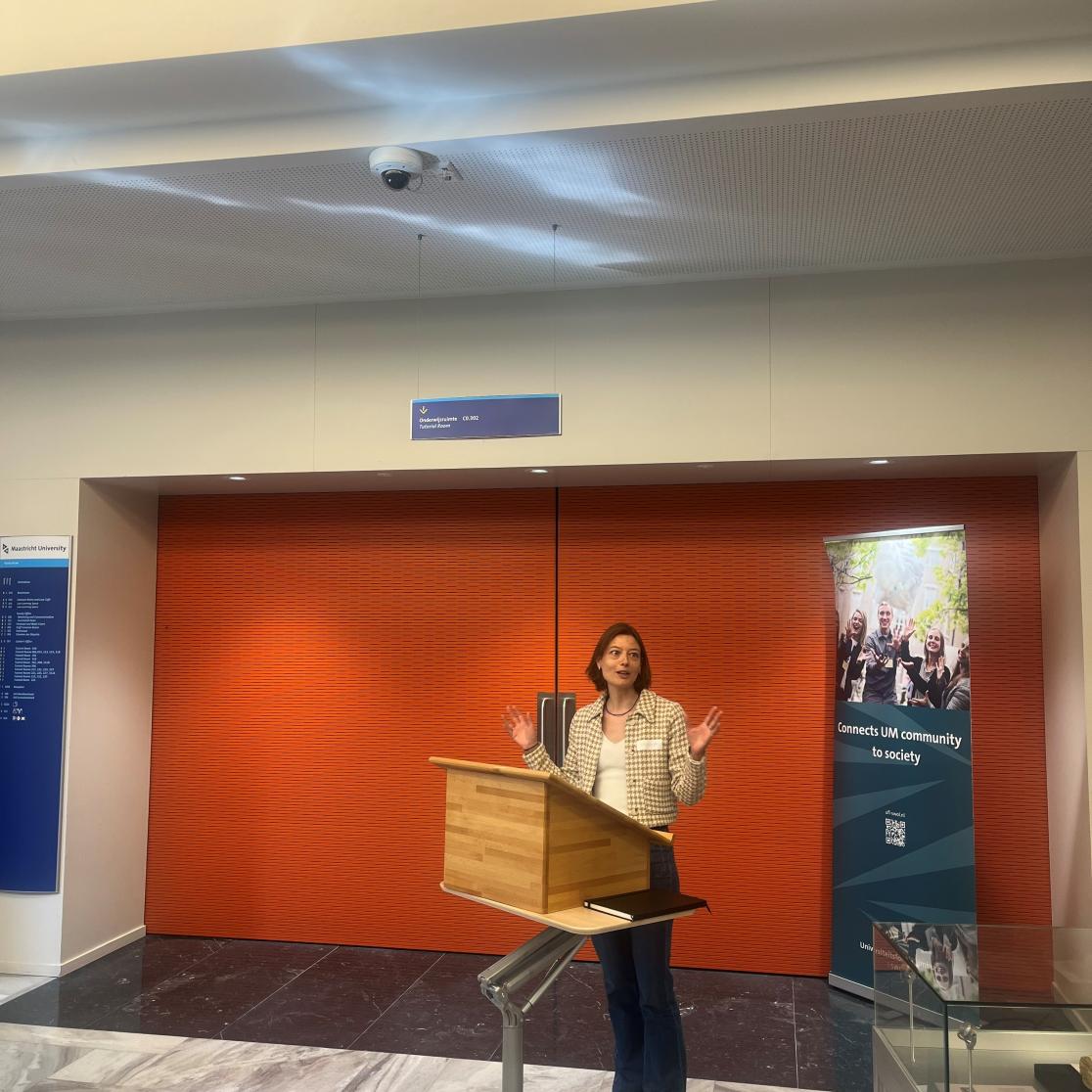
Looking Back
In 2024, new and existing ideas came to life. Livia recalls the collaboration with Lumière, a local cinema in Maastricht, in which they organised an evening combining cinema and academia. After the screening of the film La Chimera a panel discussion followed where researchers from the law faculty dissected the complex legal, social, and criminal themes in the film. Also, new plans were made for a collaborative project about Victor Hugo, a French author and politician in the 19th century. The curiosity for Hugo was ignited by Franco Peirone and the collegiate effort resulted in an international event and a book exhibition, Hugo and the Law, which can be visited from May to September 2025 at the law faculty. This effort was truly interdisciplinary, gathering colleagues from Law, FASoS, and the UM Library. ‘On this occasion, the network received submissions from across Europe, but also Asia and South America,’ recalls Agustín.
The annual Roundtable on Law & Popular Culture, which ignited the spark for the Network, also keeps expanding. The first edition lasted only three hours. Last year, the programme for the sixth edition was spread over one and a half days. This year is no different, having grown to two full days, the board can confirm. It’s clear an expansion trajectory is going on. Arthur emphasises that ‘A few students of the Law in Historical Fiction course have a guaranteed spot in the lineup, and we invite students and researchers from our faculty to submit papers, present their work, and take part in discussion panels.’
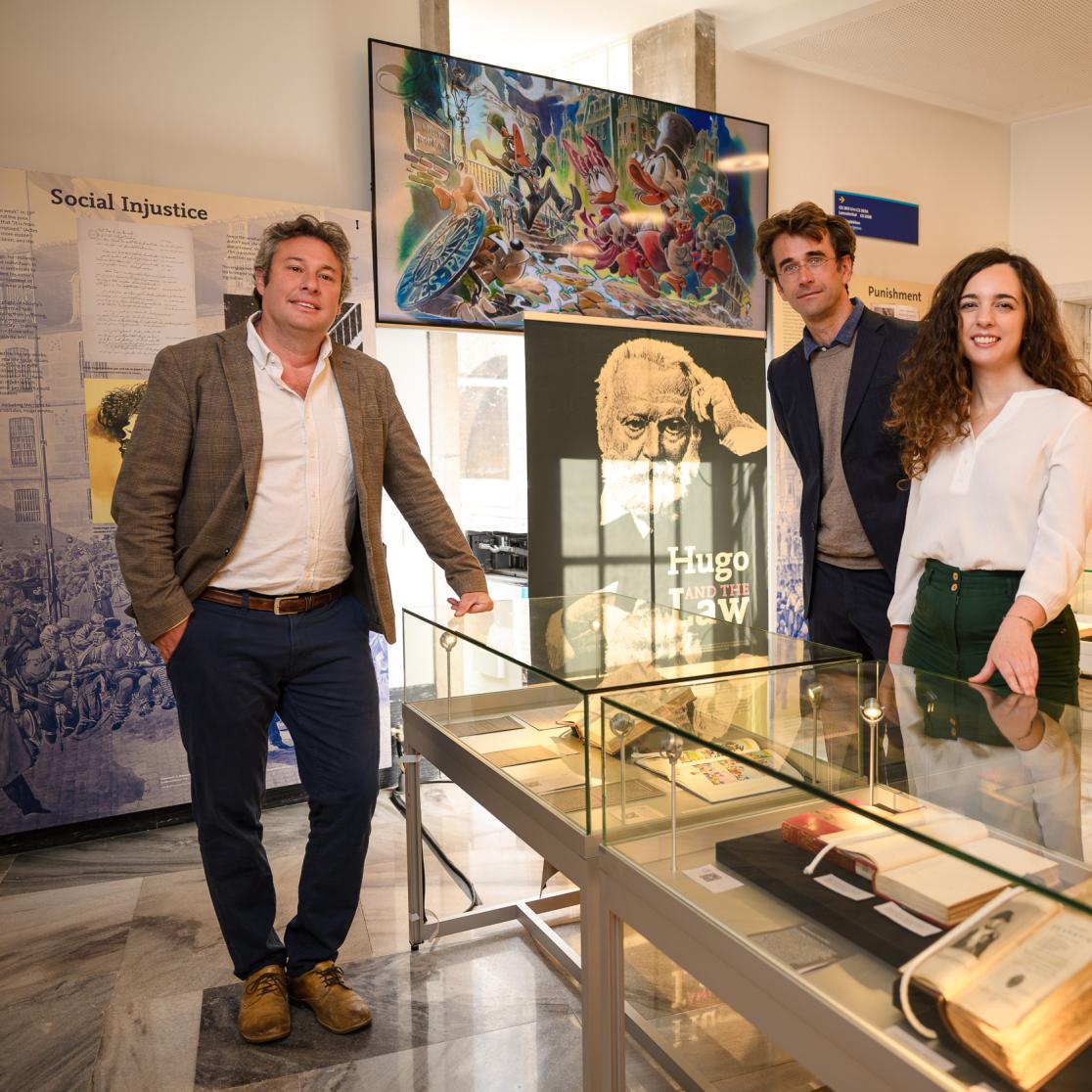
Broadening the Network’s Impact
Time to look ahead. What do the steering committee members envision for the Law and Popular Culture Research Network? Livia starts: ‘We’ve created a point of reference. People interested in law and popular culture can look at our research and come to us, publish with us and participate in our events. We might also have to start thinking from a strategic perspective: involve students even more and engage with the local community outside the faculty.’ Eline already has the idea to organise events with other groups at UM, being open to anyone who’s interested. For Arthur and Agustín, it would be great to have more people joining the network. They have a good feeling about the future of the network. ‘It’s hard to establish a network, but it’s even harder to give it continuity,’ Agustín says. ‘We have this feeling, Arthur and I spoke about it, that if any of us four leaves, the network continues. The Law and Popular Culture Research Network is a group effort.’
Also read
-
Innovative Education in Personal and Family Law
Thanks to the SURF Incentive Scheme for Open and Online Education (still available at the time), Gwen Noteborn (university lecturer in personal and family law at Maastricht University), Claudia Hocks and Janneke Hendrix (lecturers in law at Zuyd University of Applied Sciences) were able to get started...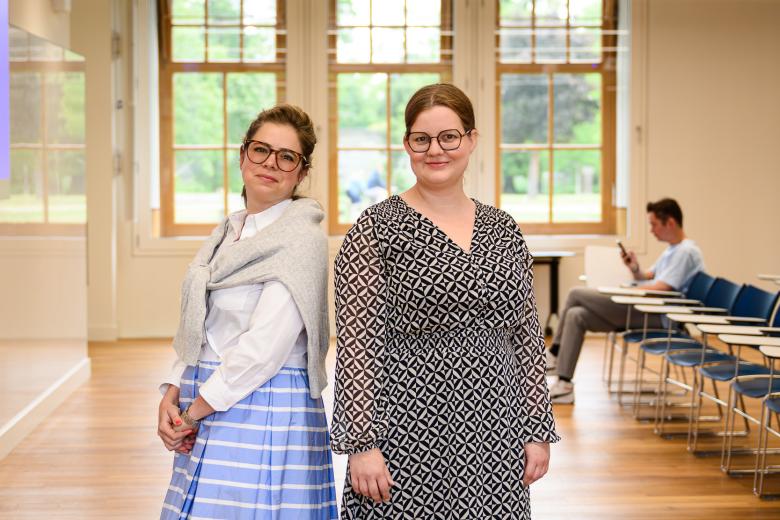
-
Conference on the Human Rights of Future Generations
On 18 & 19 November, Loevestein castle, in collaboration with Maastricht University’s Centre for Human Right and the Lab Toekomstige Generaties (Lab Future Generations), will organise a conference on the human rights of future generations.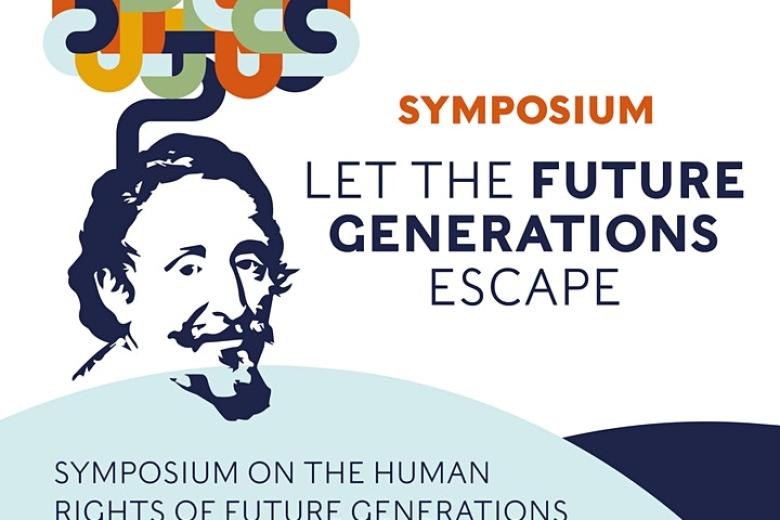
-
Hestia grants for talented UM researchers
The Dutch Research Council (NWO) today awarded a Hestia grant to two researchers, who will receive a UM appointment funded by the ‘Hestia – Impulse for Refugees in Science’ pilot, which was launched in 2018.